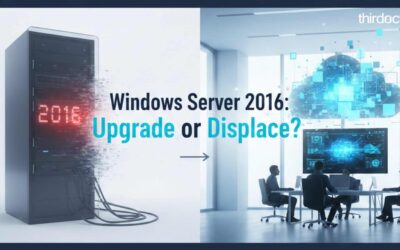Business acquisitions can offer tremendous opportunities for small-to-medium businesses (SMBs), enabling them to expand their capabilities, customer base, and market reach.
According to PwC’s 2023 Canadian M&A Outlook, in 2023, the M&A market activity in Canada is expected to be influenced by factors like rising interest rates, inflation, wage increases, economic uncertainty, and global politics. These factors create both headwinds and opportunities for dealmakers. Despite the uncertainties, 54% of Canadian corporate leaders are not planning to delay deals in 2023, indicating that M&A activity will continue, including potential acquisitions of and within the SMB space. In this blog post, we will guide you through the IT maze of business acquisitions, and we’ve also prepared a workbook for you to download, filled with thought-provoking questions to help you with the IT side of the acquisition.
The Acquisition Journey: Navigating Opportunities and Challenges
Acquiring another company is often a strategic move to drive growth. However, the process can be a maze of financial, legal, operational, and cultural challenges. Each stage requires careful consideration, from ensuring the target company is worth the investment, compliance matters, and contracts to guaranteeing smooth operational and cultural integration.
Operational Integration: The Key Phase
The operational integration stage is a crucial phase of the acquisition process. It involves aligning both companies’ business processes, technologies, and human resources to function as a single entity. This stage is about more than just merging systems—it’s about merging cultures, workflows, and philosophies.
Systems Integration: The Often-Overlooked Challenge
An often-underestimated aspect of operational integration is systems integration. Different IT systems, protocols, and policies can cause headaches if not adequately planned for and managed. The integration must ensure data continuity, minimal disruption to daily operations, and maintain or improve the overall efficiency of the IT infrastructure. Inconsistent or incompatible systems can lead to inefficiencies, duplication of efforts, data loss, or even regulatory compliance issues.
This is where an MSP can make a world of difference. MSPs are experts in managing and optimizing IT infrastructures, and their expertise can be invaluable during an acquisition, including:
Due Diligence Support: MSPs can help with the IT part of due diligence, assessing the IT landscape of the target company, identifying potential risks, and providing a roadmap for integration.
Planning and Strategy: MSPs can develop an efficient and effective IT integration strategy. They can decide which systems to retain, replace, or upgrade, considering cost, efficiency, and compatibility.
Systems Integration: MSPs excel at implementing IT systems integration. They manage complex tasks like data migration, configuration, and testing, ensuring the integrated systems work seamlessly.
Post-Acquisition Support: Beyond the integration phase, MSPs can offer invaluable ongoing support, ensuring your systems operate optimally, securely, and in compliance with relevant regulations.
A Practical Checklist for SMB Owners
If you’re an SMB owner considering an acquisition, here are some actionable steps to help you navigate this journey:
Identify IT Needs: Determine what your business needs regarding IT post-acquisition.
Consult IT Experts: Engage with IT experts early on to understand the complexity of the IT landscape.
Choose an MSP: Select an MSP that aligns with your business needs, objectives, and budget.
Audit the Target’s IT: Have a thorough IT audit of the target company to identify potential challenges.
Develop an IT Integration Plan: Develop a strategic plan for IT integration based on the audit.
Engage the MSP: Bring your MSP into the process early to assist with the integration.
Communicate with Staff: Keep your employees informed about the upcoming changes.
Monitor the Process: Keep a close watch on the process to identify and rectify issues quickly.
Review Post-Integration: Review the process to learn and improve after the integration.
Plan for the Future: With your MSP, develop a long-term IT strategy for the newly expanded company.
Acquiring another business can be a monumental task. However, the process can be managed successfully with the proper guidance and support, particularly from an MSP. An MSP can provide that expert, reliable support, helping SMB owners not only navigate the maze of acquisition but also emerge from it more robustly and ready for a successful future. As you contemplate your business growth plans, our downloadable workbook will guide you through the process around IT and acquisition, setting you up for success.




0 Comments